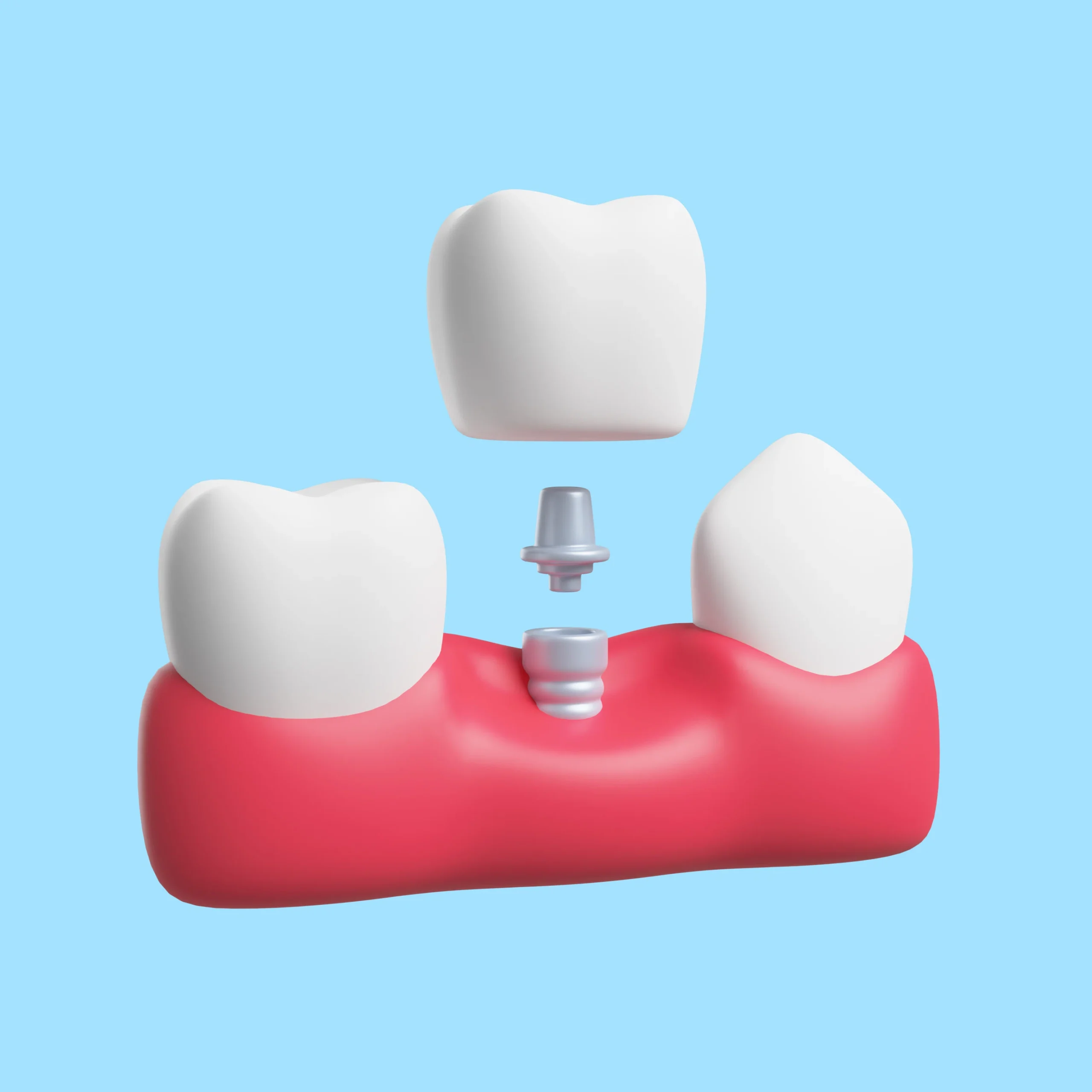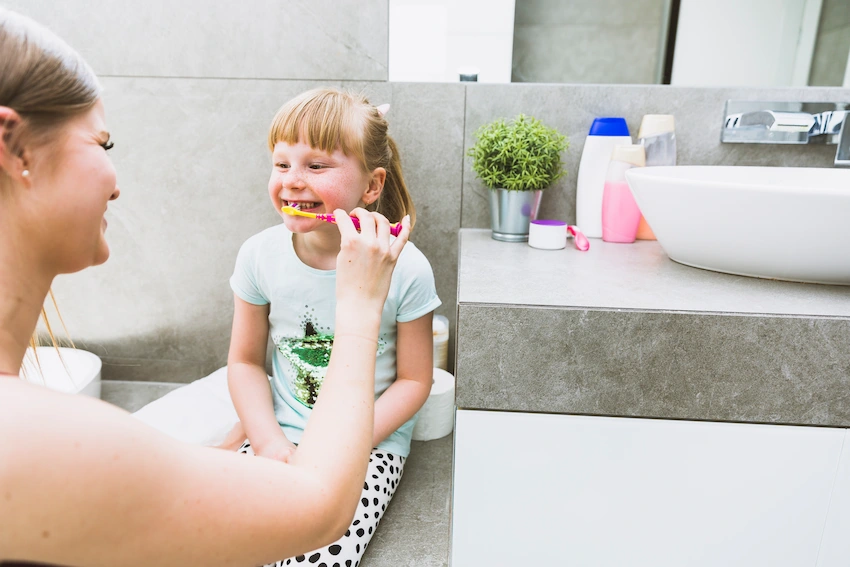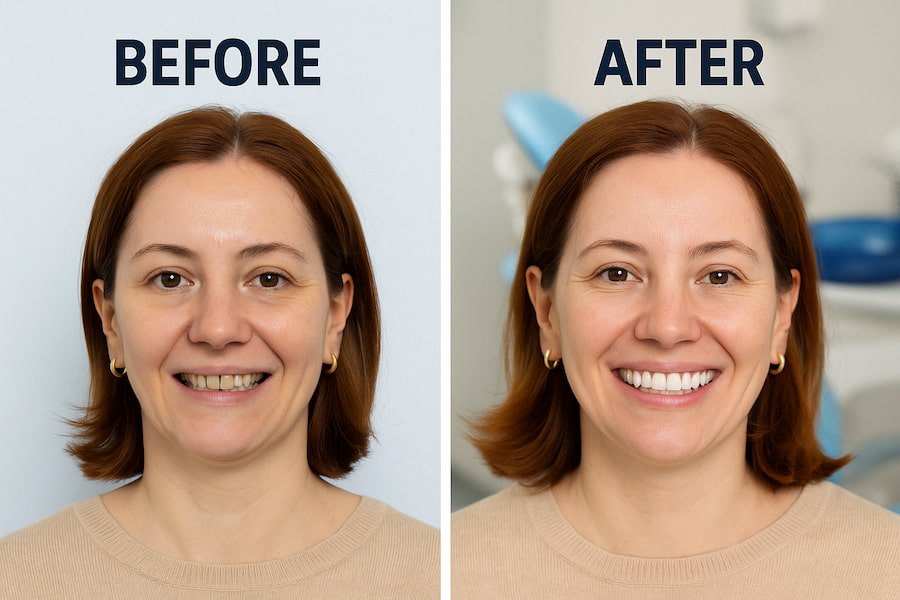🦷How To Whiten Yellow Teeth?
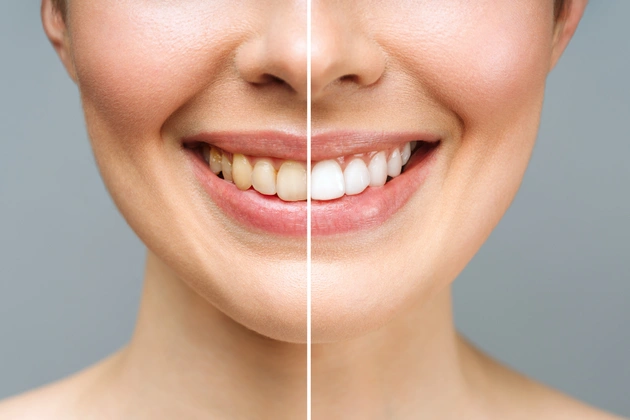
Are you looking for ways to enhance the brightness of your smile? If you are really serious about fighting the very stains that make you smile less then you should always brush your teeth regularly, use special whitening toothpaste to fight against yellowing teeth, use baking soda for tooth cleaning and to improve the effectiveness of the special toothpaste, stick to some foods that don’t have any stain-causing propensity rather than stumping your mouth.
Don’t allow that yellowing, browning, and graying of teeth if you have been suffering in silence with a smile that you regarded as undesirable. This time maybe for the first time, you can put your fears aside and discover remarkable measures that will not only create a new you but also boost your self-assurance.
Regardless of the methods employed for teeth whitening, whether it’s home-based remedies, over-the-counter products, or reference to dentists, the techniques discussed in this article will help you in making the most informed decisions regarding your objectives and the most appropriate ways to achieve that bright smile that you will be proud to show off at all sizes.
Common Causes of Tooth Discoloration
Yellowing of teeth is an issue that affects countless individuals and is attributed to a range of causes. Being familiar with these reasons would put you in a better position to understand and rectify the issue of stained teeth leading you toward alluring white teeth in a much shorter time. The most common of those causes include:
- Poor Oral Hygiene Practices: In the absence of proper maintenance procedures such as regular brushing, flossing, and professional cleanings, there is a possibility for plaque buildup to occur on teeth surfaces making them appear dull and discolored over time.
- Dietary Habits Selections: Repeated consumption of certain colored foods or drinks like coffee, tea, red wines, and berries may lead to gradual staining of the enamel surface thus resulting in ‘the yellowing effect’ over time.
- Tobacco Use: The detrimental effects of smoking cigarette sticks or using tobacco products are undeniable when it comes to unsightly tooth stains caused by tar and nicotine deposits left behind by these harmful habits on youngsters’ teeth.
- Natural Aging Processes: Old age is another factor responsible for a gradual decay process where tooth enamel tends to become thinner revealing yellowish dentin layers within thus adding a yellowish tint to one’s smile.
- Genetic Endowments: Some individuals possess genetically flawed tooth structures where some people may have enamel underdevelopments so that their teeth appear somewhat more discolored than others with normal formations even after effective cleaning measures.
The Whereabouts of Teeth Discoloration
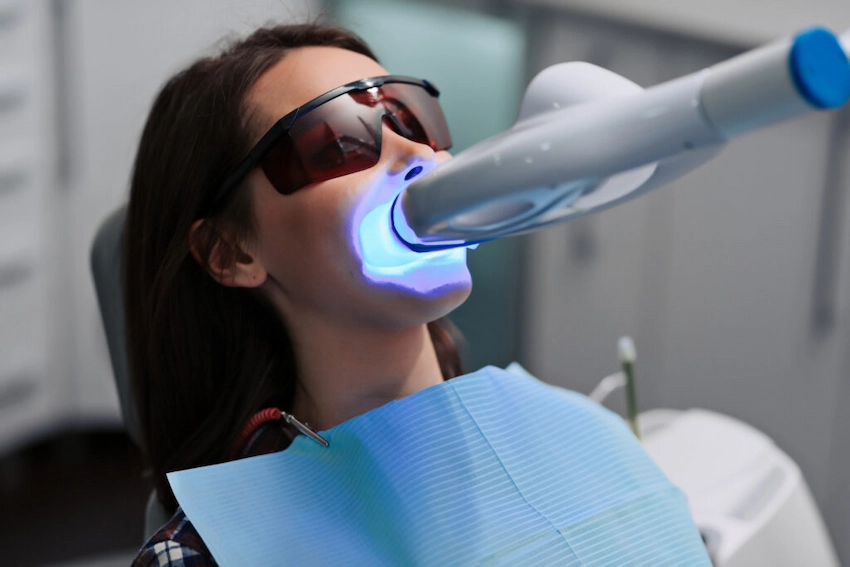
Discolored teeth are sometimes visible in several forms. Getting to know the type of emotional persons have will give you insight into what happens to their yellower teeth and what can be done about it. Teeth discoloration can basically be classified into three categories.
- Extrinsic Discoloration: This type of tooth discoloration is due to the exposure of the teeth surface to the outside factors like consuming colored foods/drinks or smoking among other openness and generally dirty mouth. Fortunately, this is the type of teeth staining that can be remedied through the use of whitening products and procedures.
- Intrinsic Discoloration: This type of tooth discoloration originates from within the tooth. It is mostly caused by factors like injuries or traumas caused to the teeth, or exposure to certain medication during childhood, and when exposure to fluoride is excessive. For this type of tooth discoloration, you will require more potent remedies such as veneers to conceal the stained area.
- Age-Related Discoloration: The passage of time can take away the original luster and color of your teeth and it mostly happens to many people. Both intrinsic and extrinsic Type and factors work together to create a condition commonly characterized by a pronounced yellow appearance of the teeth that may dent your smile.
Best Teeth Whitening Methods
Everybody wishes to have the brightest of smiles that could light even the dullest of places, and even though there are numerous ways of realizing this aspiration. Whether you are interested in advanced whitening techniques performed in a clinic or interested in whitening products which are available on the market for use at home.
You need to understand that every option has its advantages and disadvantages. The following is a comparison of some of the most common teeth whitening dental practices so that you might survey all your options within the range of their effects, expenses, and techniques used.
Natural Remedies for Yellow Teeth
For individuals who are seeking a more traditional, yet, still very effective approach to the whitening of the teeth, there are several natural remedies which not only diminish the presence of stains but also augment the brightness of your teeth. These methods are often incredibly simple and require merely items that are easily available in most home environments. The list below exemplifies some of the most widely used natural remedies to enhance the whitening of teeth.
Over-the-Counter Whitening Products
Those who wish to have a little brighter teeth without spending a lot of money may find that store-bought whitening products fit the bill. These products are sold as teeth-whitening toothpaste, gels, stripes, and mouthwashes. These products expect to remove stains from teeth and bleach teeth with hydrogen peroxide or carbamide peroxide in eliminating active components in increasing the brightness of the teeth.
If you are really looking for a whitening product and have never used one it may be sensible to commence on a cheaper product.
Professional Teeth Whitening Options
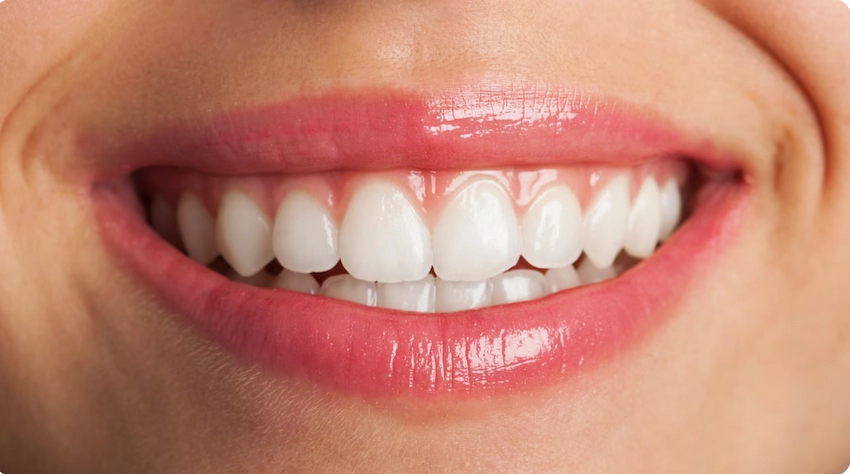
If you are looking for a truly dazzling smile that will take your breath away, then professional teeth whitening procedures are ideal, as these are typically extremely potent techniques that tailor themselves to the very special requirements of each individual. Here, however, there are several techniques provided by the dental experts which may all have only one goal of making your teeth more radiant:
- In-Office Whitening: This inventive process is carried to the next stage of its effectiveness because it involves the application of a potent bleaching agent on the teeth, which is then activated by a special light. In addition to this making the process one of the crucial ones for today’s dental patients, it’s generally a technique that a dentist may perform at his clinic within an hour, and gives amazing whitening results in an extremely short time.
- Take-Home Kits: Some other types of whitening teeth treatments available on the market are an option that is still guided by a professional, as dentists can give you customized whitening trays plus a stronger whitening gel for your home use. This can be an option for anyone who will prefer the flexibility of watching his/her teeth exceptionally whitening at home with a professional’s guidance. In the case of this procedure not being that quick, one should be patient and follow his/her dentist’s directions strictly.
- Combination Treatments: Sometimes, dentists recommend a simple trick of combining two treatments to achieve a more personalized and optimum result. In moderate whitening, this ingenious and, sometimes, a more effective technique is designed to maximize the effect of whitening as well as keep your smile radiant for a reasonable period. When the in-office procedure offers a strong and immediate change in the shade of teeth, the home application of a special bleaching gel will maintain that brightness for longer.
However, before you settle on one of the treatments outlined above, it is crucial that you consult with your dental care provider regarding the most appropriate whitening technique based on your unique dental history as well as desired aesthetic goals so that you ensure that you safely achieve the best look.
Frequently Asked Questions About Teeth Whitening
Tooth discoloration can result from poor oral hygiene, frequent consumption of stain-causing foods and drinks, smoking, natural aging, and genetic factors. These can lead to yellowing, staining, or dullness of your teeth over time.
Extrinsic discoloration affects the outer surface of the teeth and is caused by external factors like food, drink, and smoking. Intrinsic discoloration occurs inside the tooth, often due to trauma, medication, or excess fluoride exposure.
Natural remedies such as baking soda or activated charcoal can help reduce surface stains and brighten teeth. However, they may not provide the same noticeable results as professional whitening treatments.
Over-the-counter whitening products include toothpaste, gels, strips, and mouthwashes containing bleaching agents like hydrogen peroxide. These products are designed to remove surface stains and brighten teeth gradually over time.
Professional teeth whitening typically takes about an hour in the dentist’s office. The treatment uses powerful whitening agents activated by light to provide fast and noticeable results in just one session.
In-office teeth whitening delivers immediate results and uses stronger bleaching agents than at-home treatments. The process is fast, effective, and typically provides more dramatic results compared to other whitening options.
Yes, take-home whitening kits from your dentist are customized for your teeth and often contain stronger ingredients than over-the-counter products. They offer a gradual whitening effect under the supervision of your dentist.
Combination treatments, such as in-office whitening followed by at-home kits, can enhance results. This approach provides quick whitening results while ensuring long-term maintenance for your smile.
The main risks of teeth whitening include tooth sensitivity or mild gum irritation. These side effects are usually temporary and can be minimized by following your dentist’s instructions and choosing the right whitening method for your needs.
To maintain whitening results, avoid stain-causing foods and drinks like coffee or wine, and practice good oral hygiene. Using whitening toothpaste and scheduling regular dental cleanings can also help keep your smile bright.
